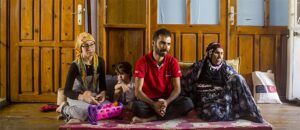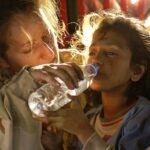The European Commission is mobilising €663 million in humanitarian aid to continue major projects under the EU Facility for Refugees in Turkey.
€600 million will ensure the continuity of the EU’s largest ever humanitarian programme – the Emergency Social Safety Net (ESSN). The remaining funds will continue supporting projects in the areas of education and essential services such as healthcare.
Through the continuation of the ESSN programme, the most vulnerable refugees in Turkey will continue to receive the monthly financial assistance through a special debit card. It helps refugees meet their basic needs such as food and rent, and at the same time integrate into the local economy and society. EU funding will also ensure more than half a million refugee children attend school regularly, and also help some 20,000 out of school children catch up on their schooling. Other support, such as access to healthcare and protection services, will also continue.
All EU humanitarian funding is strictly monitored, is delivered exclusively through our humanitarian partners and the beneficiaries of projects are known.
Background
The EU Facility for Refugees in Turkey was set up in 2015 in response to the European Council’s call for significant additional funding to support Syrian refugees in Turkey. It has a total budget of €6 billion divided into two equal tranches of €3 billion each.
In addition to humanitarian assistance, development projects under the EU Facility for Refugees in Turkey focuses on education, migration management, health, municipal infrastructure, and socio-economic support.
For More Information
Memo: questions and answers about the ESSN programme
Factsheet – The EU Facility for Refugees in Turkey
Factsheet – Humanitarian support to refugees in Turkey







Leave a Reply